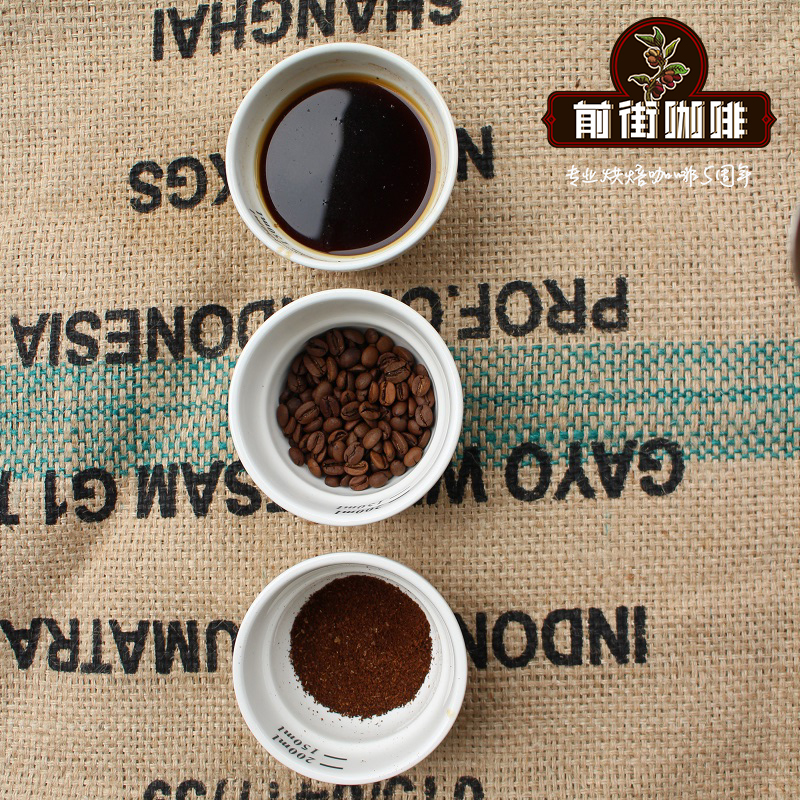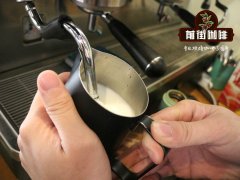The difference between organic coffee and inorganic coffee. Will organic coffee taste better? organic coffee beans are recommended.

Professional coffee knowledge exchange more coffee bean information please follow the coffee workshop (Wechat official account cafe_style)
Peru, the mysterious capital. It is bordered by Ecuador and Colombia to the north, Brazil and Bolivia to the east and Chile to the south, which is the main body of the ancient Inca empire. The western part of Peru, which is run through the Andes, has a dry plateau climate and travels eastward to the Amazon plain, belonging to a humid tropical climate. The intersection of the two major landforms and climate creates a rich microclimate with a large temperature difference between day and night, and belongs to the same gifted coffee paradise as Colombia. Coffee was transplanted here around the 18th century after Spain conquered the Inca Empire in the 16th century.
Natural organic coffee beans
Peruvian coffee fields are mainly distributed in the areas of Cajamarca in the north, Cusco in the south and Norp in the south. More than 60% of the coffee varieties are Tibika, and the others are Bobang, Kaddura and Kadim.
Peru, as the eighth largest coffee producer in the world, has exported a large amount of coffee as early as 1887. in the past decade, it has been found that organic coffee has great business opportunities in Europe and the United States, while the coffee fields in the Peruvian mountains have no running water and electricity equipment. poor Indian farmers have been accustomed to organic cultivation since ancient times and are still unable to buy or use pesticides and fertilizers. The authorities are taking advantage of the opportunity to develop the organic coffee industry, which is mentored and certified by the Government. If they meet the requirements, organic certificates will be issued to facilitate export.
There are still high-quality goods at low prices.
Peruvian organic coffee has low production costs, making it the world's largest and cheapest exporter of organic coffee. The other two major organic coffee producers are Mexico and Ethiopia, but at higher prices. The authorities intend to develop Peru into the world's leading organic coffee country, just as Vietnam is the world's largest producer of Robusta, but the floor price strategy has caused resentment in many producing countries. Although Peru dumps organic coffee at a low price, this does not mean that boutique coffee is extinct. In the 2010 SCAA Coffee of the year cup test, Tibica from Cecovasa in Tunkimayo, a small town in Puno, southeastern Peru, narrowly beat the rosy summer of the famous Panamanian emerald estate with a high score of 89.2, winning fifth place.
Tips: organic coffee
Organic coffee, which emphasizes not using chemical fertilizers and pesticides, but using organic fertilizers or farm manure, and using the ancient shade cultivation, which happens to be the favorite planting method of the ancient Tibika and Bobang; but the yield per hectare is only a few hundred kilograms, much lower than a few tons of inorganic cultivation, so the production cost is higher. In addition, organic coffee needs to be certified by international institutions in order to have credibility. Basically, the more backward and poor producing countries, farmers cannot afford to buy chemical fertilizers and pesticides, and most of them use the most natural organic cultivation; but farmers are unable to pay certification fees, so they lose the endorsement of organic certification.
Boutique: Zen tea Mayou
Chanchamayo, a Zen tea famous for producing the best quality coffee in Peru, is an absolutely organic coffee grown under natural conditions. The coffee of Mayou, a Zen tea, is generally grown in the valley of the Andes at an altitude of 1350m to 1500m. It belongs to the blue mountain native species Typica and is treated with mountain spring water, so it has rich and mellow acidity and softness, which is memorable.
Which tastes better, organic coffee or inorganic coffee? The editor can't answer, which involves a series of post-processing processes after picking. It can only be said that organic coffee looks healthier on the tree.
Qianjie coffee: Guangzhou bakery, the store is small but a variety of beans, you can find a variety of unknown beans, but also provide online store services. Https://shop104210103.taobao.com
Important Notice :
前街咖啡 FrontStreet Coffee has moved to new addredd:
FrontStreet Coffee Address: 315,Donghua East Road,GuangZhou
Tel:020 38364473
- Prev

Peru Organic Coffee Cultivation_Organic Coffee Bean Flavor Characteristics_Organic Coffee Is Good to Drink
Professional coffee knowledge exchange More coffee bean information Please pay attention to coffee workshop (Weixin Official Accounts cafe_style) Peru is located in the west of South America, bordering the South Pacific Ocean, between Chile and Ecuador. Peru has a very diverse climate, from tropical in the east to dry desert in the west, from temperate to cold in the Andes. Different climates close to the main geographical areas of Peru
- Next

The effect of Organic Certification on the Price and quality of Coffee beans why are organic coffee beans so expensive?
Professional coffee knowledge exchange more coffee bean information Please pay attention to the coffee workshop (Wechat official account cafe_style) one of the most emphasized concepts in boutique coffee is one of the things that ordinary commercial grade coffee does not have, that is traceability. But with the rise of moral consumerism, more and more guests, including bakers and consumers, are not only demanding traceability, but also more open.
Related
- Guji coffee producing area of Guji, Ethiopia: Humbela, Shakiso, Wulaga
- What is the most expensive variety of Qiloso in BOP multi-variety group?
- How to store the coffee beans bought home?
- Why are Yemeni coffee beans so rare now?
- Ethiopian Sidamo all Red Fruit Sun Sun Santa Vini Coffee beans
- SOE is mostly sour? What does it mean? Is it a single bean? what's the difference between it and Italian blending?
- Is Italian coffee beans suitable for making hand-brewed coffee?
- How to choose coffee beans when making cold coffee? What kind of coffee beans are suitable for making cold coffee?
- Just entered the pit to make coffee, what kind of coffee beans should be chosen?
- Can only Japan buy real Blue Mountain Coffee? What are authentic Jamaican Blue Mountain coffee beans?

